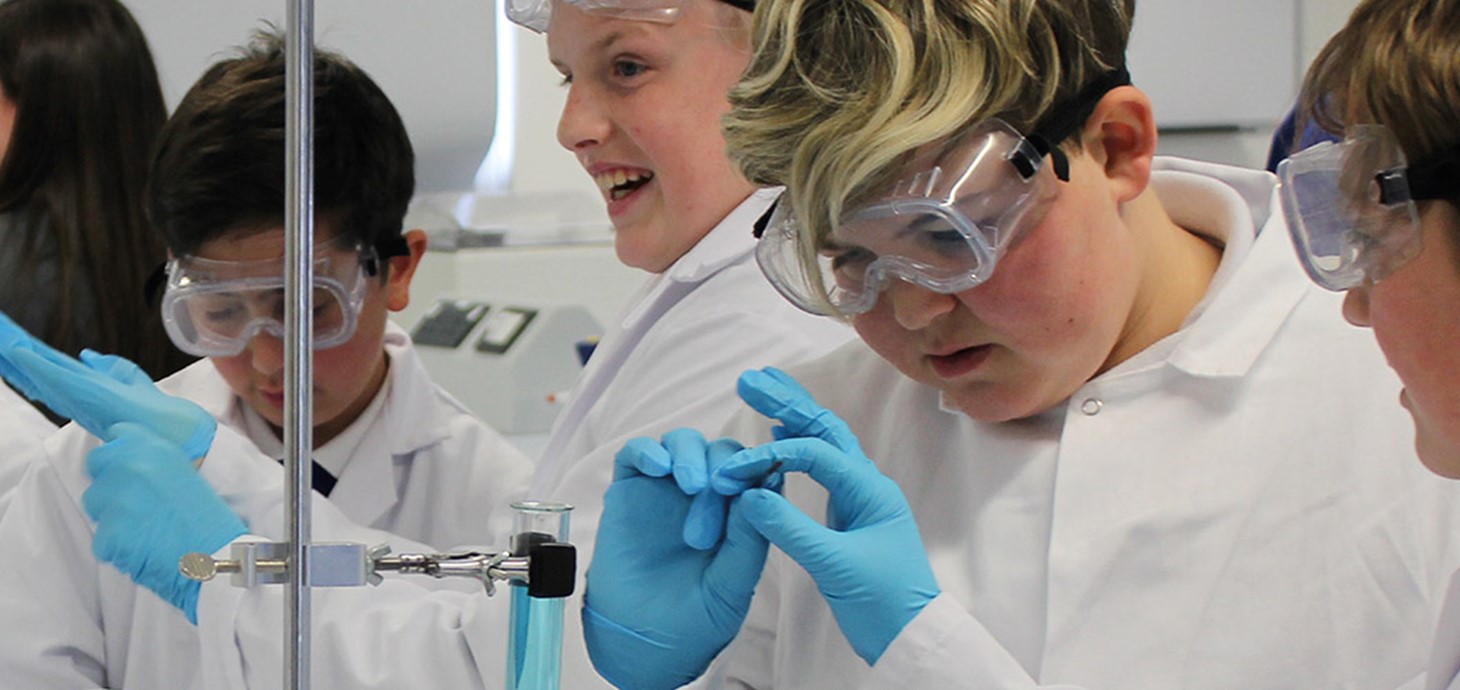These articles are now archived and will no longer be updated.

Outreach scientists and academics from Swansea University have been hard at work in their kitchens and gardens producing online science workshops, lessons, and science club content to give school students the support and resources they need to continue their science learning from home, during lockdown.
Swansea University academic, Professor Mary Gagen, who, along with Dr Will Bryan, leads the S4 programme, said: “As soon as it became clear that schools would need to close for some time we started looking at ways to bring our hands-on science lessons online and into digital, interactive workbooks, so our participants could carry on experiencing science in their homes, even if they had access to limited resources. We’ve also been producing written materials that can be physically sent to pupils who do not have access to technology and are working to provide laptops and tablets to those pupils most in need.”
While schools are closed there is the real possibility that children, particularly those from disadvantaged backgrounds, can fall behind with their schoolwork. This has prompted Swansea University’s Science for Schools Scheme (S4), an outreach project that brings curiosity-driven hands-on science workshops to young people, to produce online resources to help pupils keep on learning science. S4 is a partner of the Welsh Government’s Trio Sci Cymru, pan-Wales programme along with Aberystwyth, Bangor, and Cardiff Universities, and works with a number of schools in the Swansea, Neath Port Talbot, and Maesteg areas.
The project focuses on children from backgrounds with traditionally low participation in science at school, and in higher education. Working with pupils during the first three years of secondary school, at Key Stage 3, S4 hopes to support students from a more diverse range of backgrounds to choose triple science GCSE. Normally, S4 participants visit a purpose-built outreach classroom on the University’s Singleton Campus for hands-on science workshops that aim to bring science to life, whilst giving pupils a chance to visit the university campus.
Now, during lockdown, S4 have launched an online version of their programme that has seen science tutors working from their homes to provide demos, lessons, at home experiments, and digital workbooks; all hosted on the S4 website. This resource has also been expanded to provide content for older students that follows the Key Stage 4 and 5 curriculum, and for younger children at Key Stage 2, in order to support the Welsh Government’s Stay Safe Stay Learning programme.
Heidi Rehwald, S4 Project Manager, said: “We have worked with our partner schools closely, so that teachers can direct study, but students can also download the materials themselves to work on at their own pace – in fact the resources are available to any child or teacher, worldwide.”
As well as S4’s Online Science lessons and an S4 Science Club, the programme also takes requests and encourages the students to tell the team what they want to cover. Also featured are links to wildlife biologist Lizzie Daly’s Earth Live Lessons which explore conservation, biology, geography, and earth science topics with lessons on topics such as puffins ecology, orangutan biology, nuclear power and astronomy! Each lesson has accompanying worksheets for Key Stages 2 through 5. Older pupils can also listen in to the University’s Exploring Global Problems podcasts with accompanying A Level worksheets, activities and exercises.
Participating schools’ staff have shown their support for the programme. Paul Davies, Acting Head from Dylan Thomas Community School, said: “What I can confirm 100% is what a wonderful programme and opportunity this has been for our staff and pupils, who have had experiences way outside what we normally could have offered. Many more pupils have developed a passion and love for science throughout the duration of the programme and for this we are very grateful. I sincerely hope that we can explore ways and means of continuing to work in partnership at the end of this current programme to benefit us all.”
Heidi said: “By taking our content online, we hope our students will continue to participate, work hard, and believe that science and higher education are there for them in their futures”
“Everyone involved in S4 is doing their best to ensure that our participant’s impetus and enthusiasm for science isn’t lost during the school closures - but we all look forward to the time when we can meet our students in person again.”
